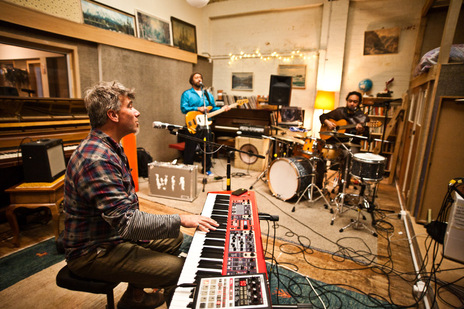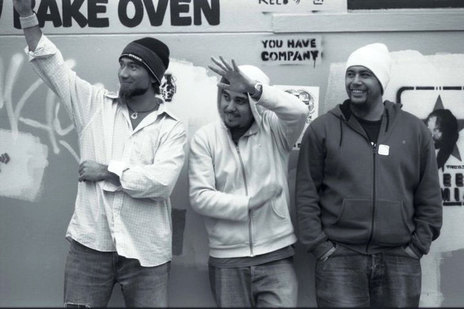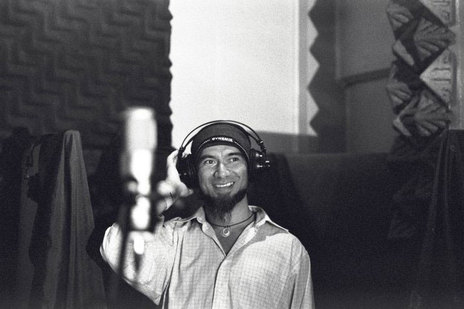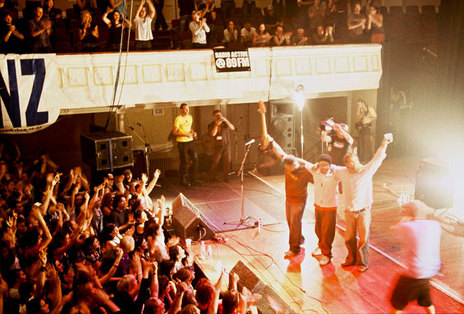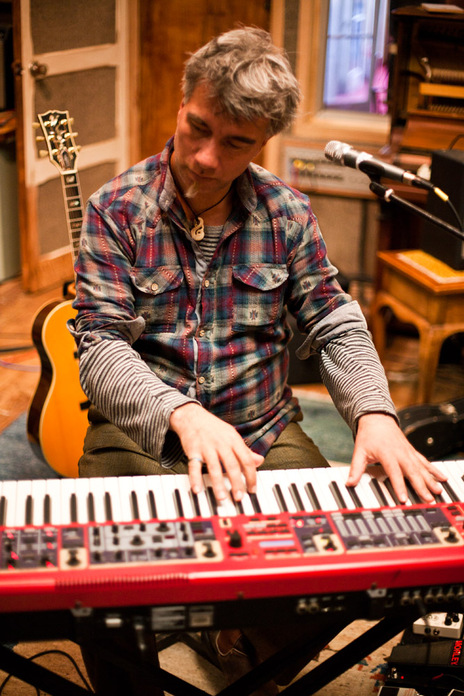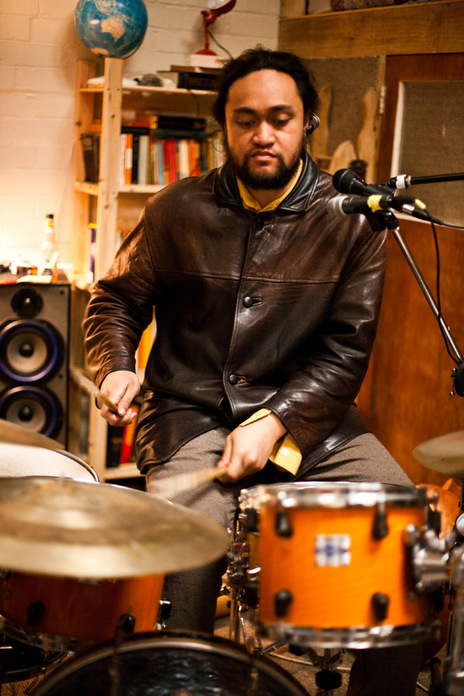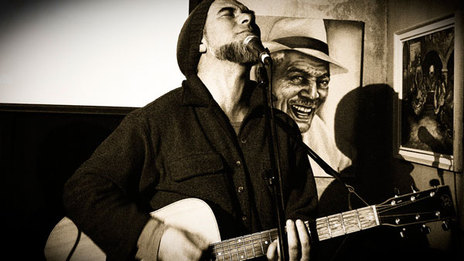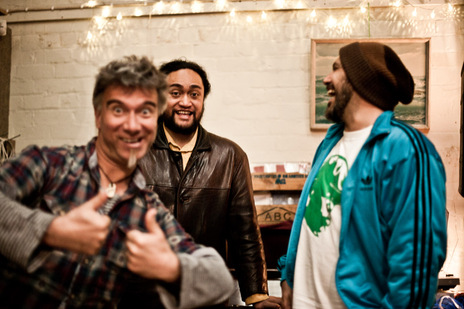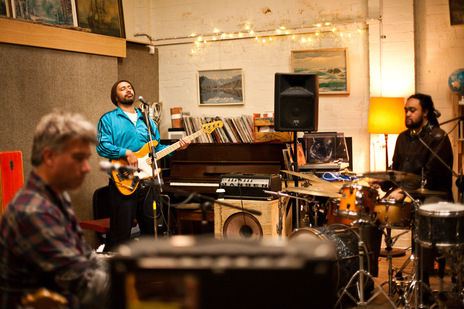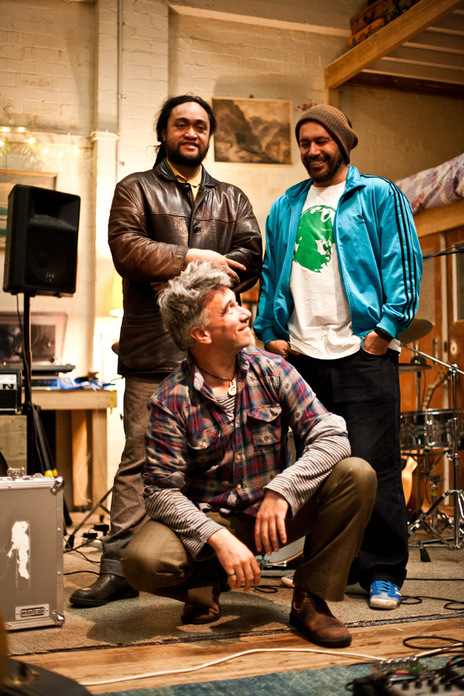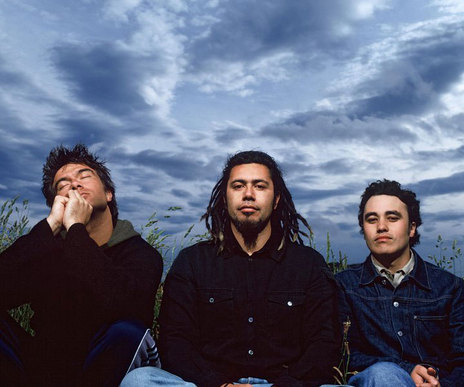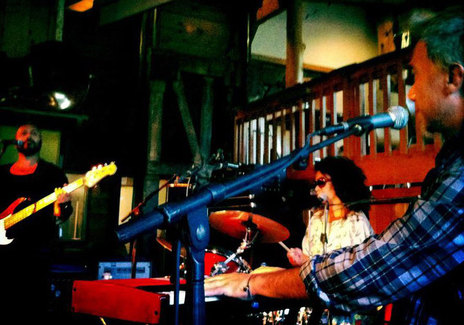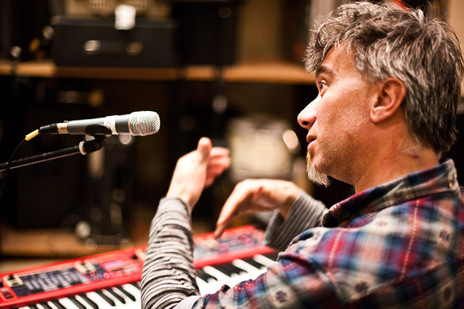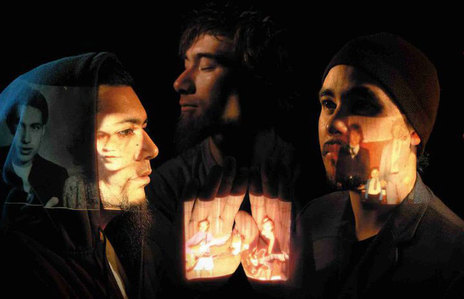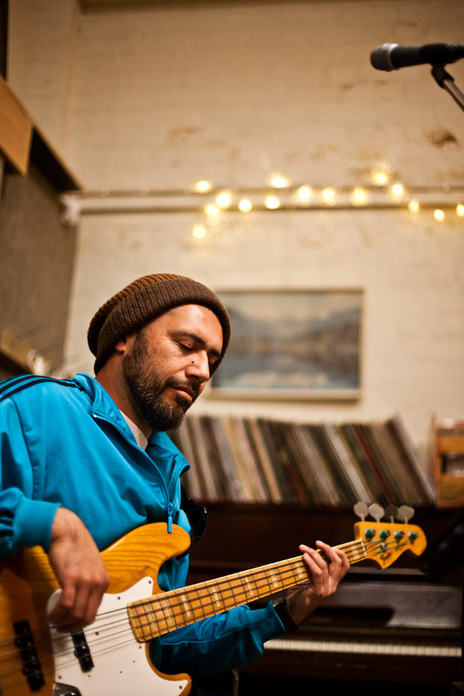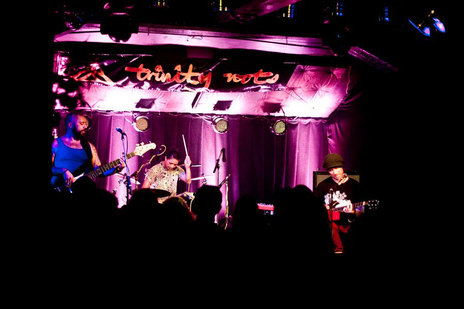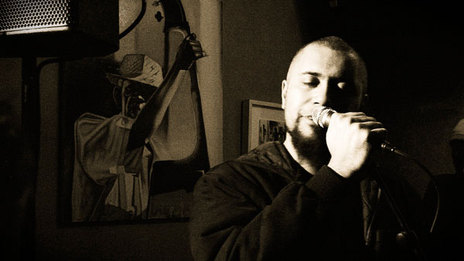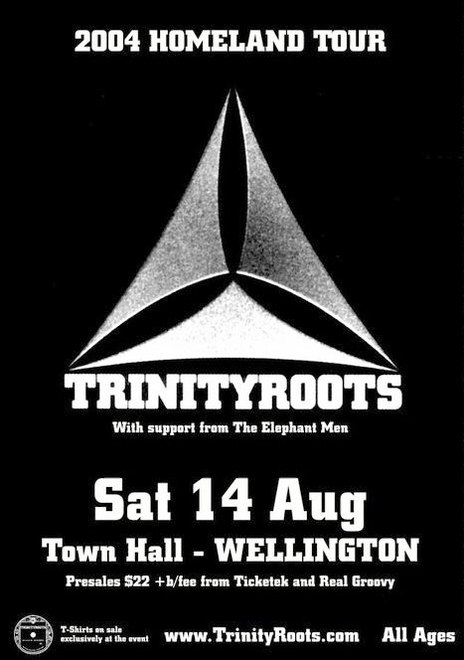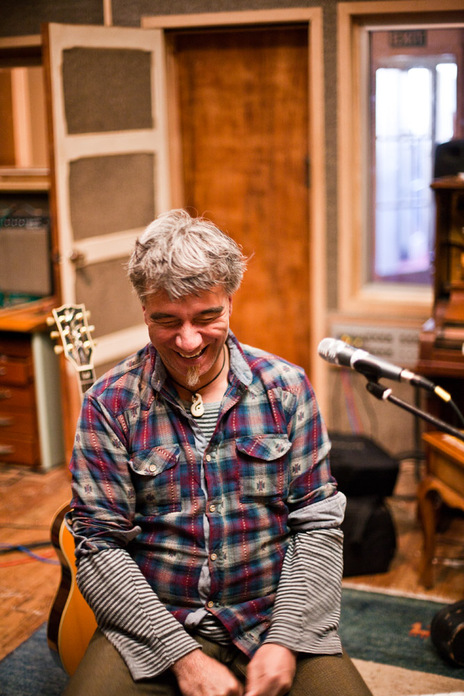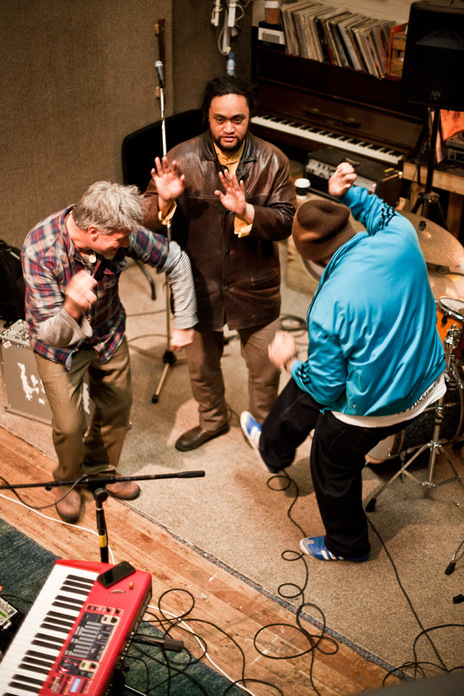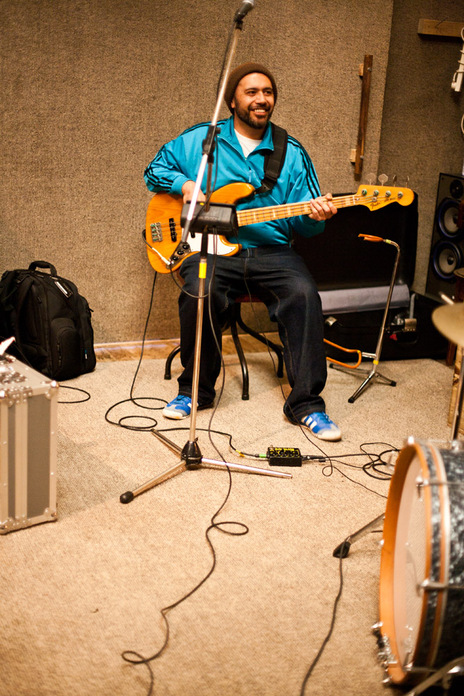In the process, they created and popularised an aesthetic, which in the tradition of great New Zealand bands like The Clean and Herbs, seemed implicitly rooted within the natural landscape of our country: home, land and sea.
"We wanted to get back to our roots and play some café sets – just a couple of bros and guitars."
– Warren Maxwell
TrinityRoots formed in Wellington in 1998. Lead singer, guitarist and keyboardist Warren Maxwell and bassist/vocalist Rio Hunuki-Hemopo had just finished studying at the Wellington Conservatorium of Music's Jazz School. As Maxwell told NZ Musician magazine in 2002, "We wanted to get back to our roots and play some café sets – just a couple of bros and guitars." Inviting Riki Gooch (drums, sampler, turntables, vocals) to join them, they made their debut at a private party in August that same year.
A week after that party, TrinityRoots entered and won the Victoria University Operation Music Storm Battle of The Bands. The prize was recording time at Inca Studios with Mike Gibson. Out of this experience, TrinityRoots began recording their debut EP Little Things. Completed in 2000, Darren Mathiassen briefly joined the band on drums while recording it. Releasing Little Things that year, they proceeded to gig heavily around Wellington, opening for internationals like Ben Harper, The Mad Professor and Lee Scratch Perry, and hitting the summer festival circuit. During this time Maxwell also joined Fat Freddy's Drop, with whom he played saxophone until 2006.
Next, with the aid of a private investor, they recorded their first album. True was created between central Hawke's Bay, Oruawharu and Dr Lee Prebble's Surgery studios in Wellington. Released on their own label in 2001, it achieved platinum record sales (15,000 units) in New Zealand, with very minimal marketing. Stylus magazine stated in a review of the album, "TrinityRoots have come to symbolize all that’s good about the New Zealand music scene – fiercely creative musicians striving for success on an independent basis." During this time their popularity continued to grow nationally, and they were rewarded with large audiences when they toured nationally. They also began to tour internationally, playing across Europe and the United Kingdom.
TrinityRoots were awarded Best Roots Album at the NZ Music Awards.
In 2003 Maxwell was awarded best musician at the bNet Music Awards for his work in TrinityRoots and Fat Freddy's Drop. The same year TrinityRoots were awarded Best Roots Album at the NZ Music Awards.
In 2004 TrinityRoots released their second album Home, Land and Sea, again on their own label. Recorded with Dr Lee Prebble, Home, Land and Sea saw them work with the likes of Hollie Smith (vocals) and keyboardist Jonathan Crayford. Home, Land and Sea also achieved platinum sales in New Zealand. Well received critically, NZ Musician magazine described the album as, “succeed[ing] in capturing an essence of that which is unique to Aotearoa."
At the start of 2005, TrinityRoots separated as a band, playing their final show as part of a sellout concert to raise relief funds for the 2004 Boxing Day Tsunami at the Wellington Town Hall. Maxwell went on to form the now well loved psychedelic blues group Little Bushman. Hunuki-Hemopo spent a stint as a session musician with Breaks Co-Op, before focusing on his own music. Gooch spent time as a session player, eventually producing for the likes of Hollie Smith and Ria Hall, as well as assembling his Eru Dangerspiel funk orchestra, and recording and performing music under his own name.
Halfway through 2005, TrinityRoots' registered trading company was put into liquidation owing nearly $100,000 to IRD. That year TrinityRoots was also awarded Best Album, Best Live Act and Best Downbeat Release for Home, Land and Sea at the bNet Music Awards.
In 2010, after resolving their financial issues, TrinityRoots reformed, embarking on a national reunion tour.
In 2010, after resolving their financial issues, TrinityRoots reformed, embarking on a national reunion tour. In tandem, they reissued their back catalogue, and released a documentary DVD/live album packaged titled Music Is Choice. The documentary was directed by Wellington filmmaker and photographer Sarah Hunter. Capitalising on this rebirth, they performed at Womad NZ in 2011 and made an acclaimed main stage performance at the prestigious Byron Bay Bluesfest. That year Music Is Choice was awarded Best Roots Album at the 2011 New Zealand Music Awards.
In mid 2011 Gooch left TrinityRoots and was replaced by drummer/vocalist Jean Pompey. Drummer and multi-instrumentalist Ben Wood joined in 2013 after Pompey's departure. They continue to tour and perform at festivals across New Zealand, Australia and beyond. Over 20 years in, TrinityRoots remain a marquee name within New Zealand's musical landscape, and by virtue of that, a benchmark for independent musical success within our country.
